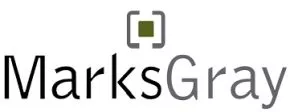- within Intellectual Property topic(s)
- in United States
- within Intellectual Property, Technology, Media, Telecoms, IT and Entertainment topic(s)
- with readers working within the Retail & Leisure industries
On August 4, 2025, Apple Inc. filed a federal lawsuit in Massachusetts against Sand Media Corp., owner of "Apple Cinemas," a movie theatre chain based in New England. Apple claims that the theatre's use of the name "Apple" infringes on its well‐known trademark, risks consumer confusion, dilutes its brand, and that Apple Cinemas is improperly capitalizing on Apple's prestige.
How does this case provide a vivid real‐world illustration of key trademark law principles?
Famous Marks and Consumer Confusion
Trademark law is fundamentally designed to protect consumers from confusing two companies or products while simultaneously protecting businesses' reputations.
A famous mark like "Apple" is presumed strong, and public association with that mark is high. Because of this, Apple alleges that consumers have already been confused, and they have evidence to back that up: social media posts questioning whether Apple Cinemas is affiliated with Apple Inc.
This could trigger the "likelihood of confusion" standard, one of the core tests in trademark infringement cases.
Dilution of Distinctiveness
Trademark law also protects famous marks from dilution (losing their unique identity) even if there is no outright confusion. Apple claims that Apple Cinemas uses its name to gain favorable leases, positioning itself like an "anchor tenant" where no Apple Store exists, thereby leveraging Apple's brand strength improperly.
Of particular importance in this case is the fact that a famous mark need not be used on identical goods or services to be protected from dilution. Using the same strong name in unrelated contexts still matters if it weakens the brand's uniqueness.
Apple Cinemas Has Already Had Their Trademark Denied
Apple Cinemas sought to register "Apple Cinemas" and a related logo ("ACX – Apple Cinematic Experience") with the U.S. Patent and Trademark Office (USPTO), but was denied in October 2024 based on a conclusion that the marks were "likely to cause confusion" with Apple's famous entertainment and tech offerings.
That denial shows how trademark registration offices anticipate and analyze confusion – even before court proceedings. It is also a strong argument in Apple's favor.
No Ceasing or Desisting for Apple Cinemas
Apple allegedly sent cease-and-desist letters and pursued discussions to resolve matters before filing suit. The complaint claims Apple Cinemas refused to alter its business plan or name despite these warnings.
This is common practice: trademark owners often first try negotiation and cease-and-desist letters. Litigation is a last resort since it cost so much money.
What is Apple Cinemas' argument against changing its name?
Number one, Apple Cinemas disputes the assertion that consumers are confused. Moreover, they argue that their name is tied to geographic roots (originally from "Apple Valley Mall" in Rhode Island) and that their branding is different and legally compliant.
The chain also claims it responded reasonably to communications from Apple and that customer confusion claims are unwarranted. Still, that is not likely to prevent the case from moving forward.
What Lessons Can Other Business Owners Take from This?
Choose your name wisely. If your brand name is (or closely resembles) that of a famous company, you risk legal trouble – even if your business is in a different trade channel. This last part is something that many entrepreneurs do not realize, and it is very important to understand.
Famous marks are heavily protected. Courts and the USPTO treat them sensitively, demanding proof there is no false association or dilution.
Marks matter beyond direct competition. Protection extends into related fields (like entertainment, streaming, retail), not just the owner's primary business.
Act early. If someone else's name or brand raises red flags, it is better to consult a trademark lawyer and consider rebranding before a lawsuit bites you.
Overall, the Apple vs. Apple Cinemas dispute highlights the power and sensitivity of trademarks, especially famous ones. Businesses big and small should understand that trademarks are not just names, they are legal assets whose usage must be carefully managed to avoid confusion, dilution, and costly litigation.
Worried about the possibility of your trademark hewing too close to that of a famous brand? Get in touch so that we can figure out the best plan forward for your business.
Originally published Sep 22, 2025
The content of this article is intended to provide a general guide to the subject matter. Specialist advice should be sought about your specific circumstances.


